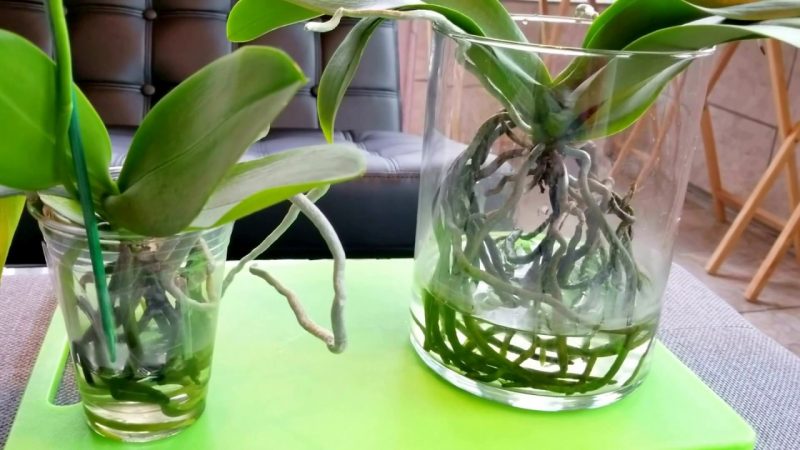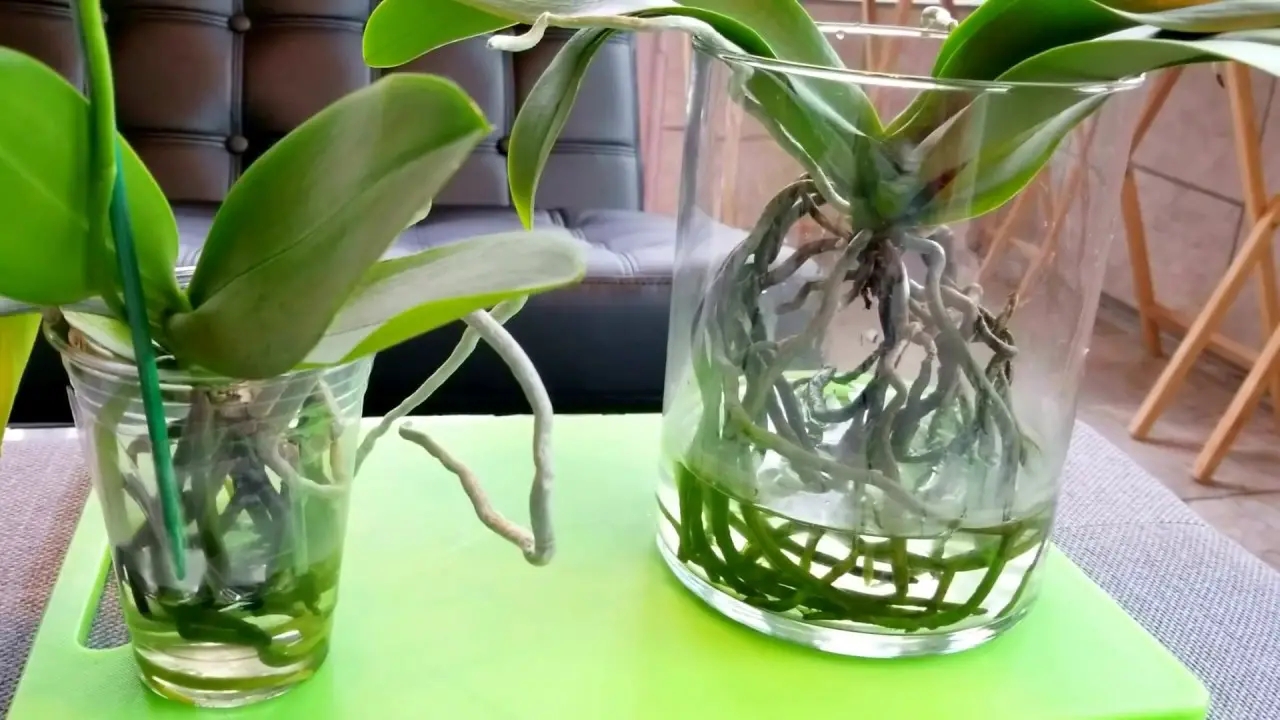Can orchids grow in water? The answer is yes. Surprised? Read on to find out how you can grow orchids in water.

Orchids are a type of flower that is known for being delicate and beautiful. They are also believed to be difficult to care for, as they require a high level of maintenance.
The difficulty in growing orchids is often exaggerated. I have noticed some folks tend to overcomplicate things.
They do this so they can sound smart or even discourage people from trying.
But in truth, growing orchids is really no harder than growing any other plant once you understand what its needs are.
Can Orchids Grow In Water?
At first, when you think about combining orchids with hydroponics you may think this is crazy, scary, or very complicated.
Actually nothing could be further from the truth.
By growing orchids in water, you can create a system that is easy to care for and allows the flowers to thrive.
In fact, growing orchids in water can be beneficial for the plant. When you grow orchids in water, they are able to take in nutrients more easily and are less likely to experience problems with drainage.
Overwatering orchids cause more problems than just about anything else so growing them in water sounds insane at first.
But once your orchids are acclimated to this method growing orchids in water can actually help to prevent root rot, a common issue that can occur when the plant is grown in soil mixtures.
Most Orchids Are Epiphytes
Most orchids are epiphytes or more commonly called air plants. They typically grow attached to trees.
They have specially developed roots that actually absorb water and nutrients from the air.
Burying their roots in an orchid mix is not really natural for most epiphytic orchids.
There are terrestrial orchids that grow in leaves on the forest floor but these are less commonly grown. Terrestrial Orchid Unboxing – Hydroponic Orchids
So the trick to growing orchids is to provide enough humidity without overwatering the plant.
This is why water culture works so well for orchids.
How To Grow Orchids In Water
If you are interested in growing orchids in water, there are a few things you will need to do in order to set up your system.
First, you will need to choose a container that is large enough to accommodate the roots of your orchid.
Glass vases work very well for this and it is best if they are clear so you can see their roots.
You can add a growing medium, such as hydroton or perlite, to the very bottom of the container.
Preparing Your Orchids To Grow In Water
This method will work much better for a new plant than one that has been in soil for a while.
It is important to thoroughly clean the roots of any sphagnum, bark, or other grow media. These things will break down and rot.
You also will want to inspect the roots and trim off any damaged, unhealthy or diseased roots.
Once you have done this, you can add water to the container and then place your orchid inside.
You only want the root tips to touch the water. The humidity inside the vase will help the roots grow.
It is important to note that you will need to change the water every week or so, as it can become stagnant and cause problems for the plant.
You should expect your orchids to need some time to fully adapt to growing in hydroponics.
How Long Should Orchids Be Kept In Water?
The length of time you keep orchids in water will depend on the type of orchid you are growing.
There are methods that partially submerge the roots for several days and then give them a dry cycle for several days.
I think water culture or semi water culture methods are overcomplicated and most people will forget how long to keep their orchids in water and how long to keep them dry.
That is why I prefer to just keep the tips wet and simply change the water weekly.
When in doubt, it is always best to err on the side of caution and check the roots of your orchid to see if they are still healthy.
Growing orchids in water can be a great way to care for these beautiful flowers.
By following the steps outlined above, you can create a system that is easy to maintain and will allow your orchids to thrive.
When it comes to watering your orchid, it is important to use distilled or reverse osmosis water.
Orchids prefer a slightly acidic pH so most tap water will have a high pH and may contain unwanted minerals.
So use distilled or tap water and add an orchid fertilizer to it. Do not use full-strength fertilizer.
Most fertilizer recommendations are for plants in a growing medium and are fed weekly or monthly but your plants will be in water 24/7.
Growing Orchids Without Soil?
Orchids can grow in water without soil. Normally orchids use a growing medium to provide support for their roots.
But this is not needed when growing orchids in water. Some people add some LECA to the bottom of the vase and set the roots on top of it.
If you are growing your orchid in water, you will need to change the water every week or so to prevent stagnation.
Additionally, you will need to lightly fertilize the plant every two weeks using a balanced fertilizer.
When it comes to lighting, orchids grow naturally in the understory of tropical rainforests so orchids prefer bright, indirect light.
Too much direct sunlight can harm them. Their lower light requirements make them a good choice to grow indoors.
Growing orchids in water can eliminate and simplify the need to repot orchids as often.
Orchids don’t mind being somewhat rootbound so when your roots get too crowded you simply need a slightly larger vase.
Can Orchids Grow In Water Final Thoughts
Growing orchids in water is a great way to care for these beautiful flowers. By following the steps outlined above, you can create a system that is easy to maintain and will allow your orchids to thrive.
Read more: Growing Orchids In Hydroponics: Tips and Tricks
This post contains affiliate links.


